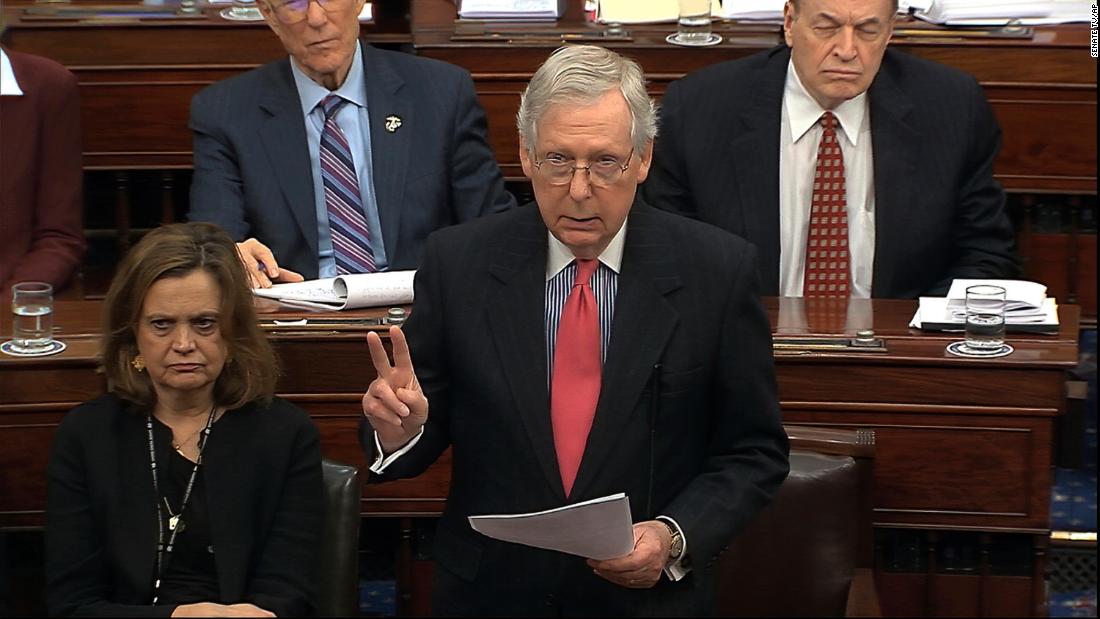[ad_1]
Many of the questions were lobbed as friendly queries — Democrats giving the managers the chance to make a point, and Republicans responding with the same tactic for the defense counsel — but there were key questions interspersed from undecided senators and to challenge the opposing side that led to illuminating and insightful — or less than insightful — responses.
Some of the most interesting questions Wednesday came from those Republicans, though Alexander did not ask any questions. Collins and Murkowski, for instance, asked the President’s team whether Trump had raised corruption and Joe Biden before the former vice president entered the 2020 presidential race. Romney asked the President’s legal team when the White House first decided to hold the US assistance to Ukraine and what was the rationale the President gave then.
Collins would not say whether the answers affected her thinking.
“I’m not going to be commenting further,” she said Thursday. “I look forward to today’s Q&A. I thought yesterday’s Q&A was very interesting.”
Alexander told CNN Thursday that he still has not made up his mind on how he will vote on witnesses. He said he is prepared to listen to the process and the rest of the question and answer session.
Democrats, meanwhile, were incensed with several answers the President’s team offered. Sen. Mark Warner, the top Senate Intelligence Committee Democrat, slammed the President’s team for arguing “foreign interference, in a sense, is OK if it doesn’t fall into the classic definition of a campaign contribution.”
“Republicans have gone from denying what the President did, to normalizing it by claiming every President does it, to now saying there’s nothing wrong with it even if he did it,” Senate Minority Leader Chuck Schumer said Thursday.
Dershowitz tried to clean up the response on Twitter Thursday, saying: “They characterized my argument as if I had said that if a president believes that his re-election was in the national interest, he can do anything. I said nothing like that, as anyone who actually heard what I said can attest.”
Republicans defended the President’s attorney. “He makes a lot of very extreme examples to make his point,” said GOP Sen. Kevin Cramer of North Dakota. “I have a tendency to do the same thing from time to time and sometimes that can be misconstrued.”
While much of the focus is on the Republicans, some moderate Democrats have yet to say whether how they will vote on the overall outcome of the trial. “Am I wrestling with it? Every minute of every day,” Sen. Joe Manchin, a West Virginia Democrat, said Thursday, adding he was “still in shock” over Dershowitz’s comments.
Paul believes he has every right to ask his question and that Roberts has no grounds to block it, but it ran afoul of Roberts’ communicated red line, and Paul was informed by GOP Senate leadership he couldn’t ask it.
The debate is not over yet, however, and Paul could try to force the issue on the floor.
“Senator Paul will insist on his question being asked during today’s trial,” Paul’s spokesman Sergio Gor tweeted Thursday. “Uncertain of what will occur on the Senate floor, but American people deserve to know how this all came about.”
CNN’s Ellie Kaufman and Ali Zaslav contributed to this report.
[ad_2]
Source link



